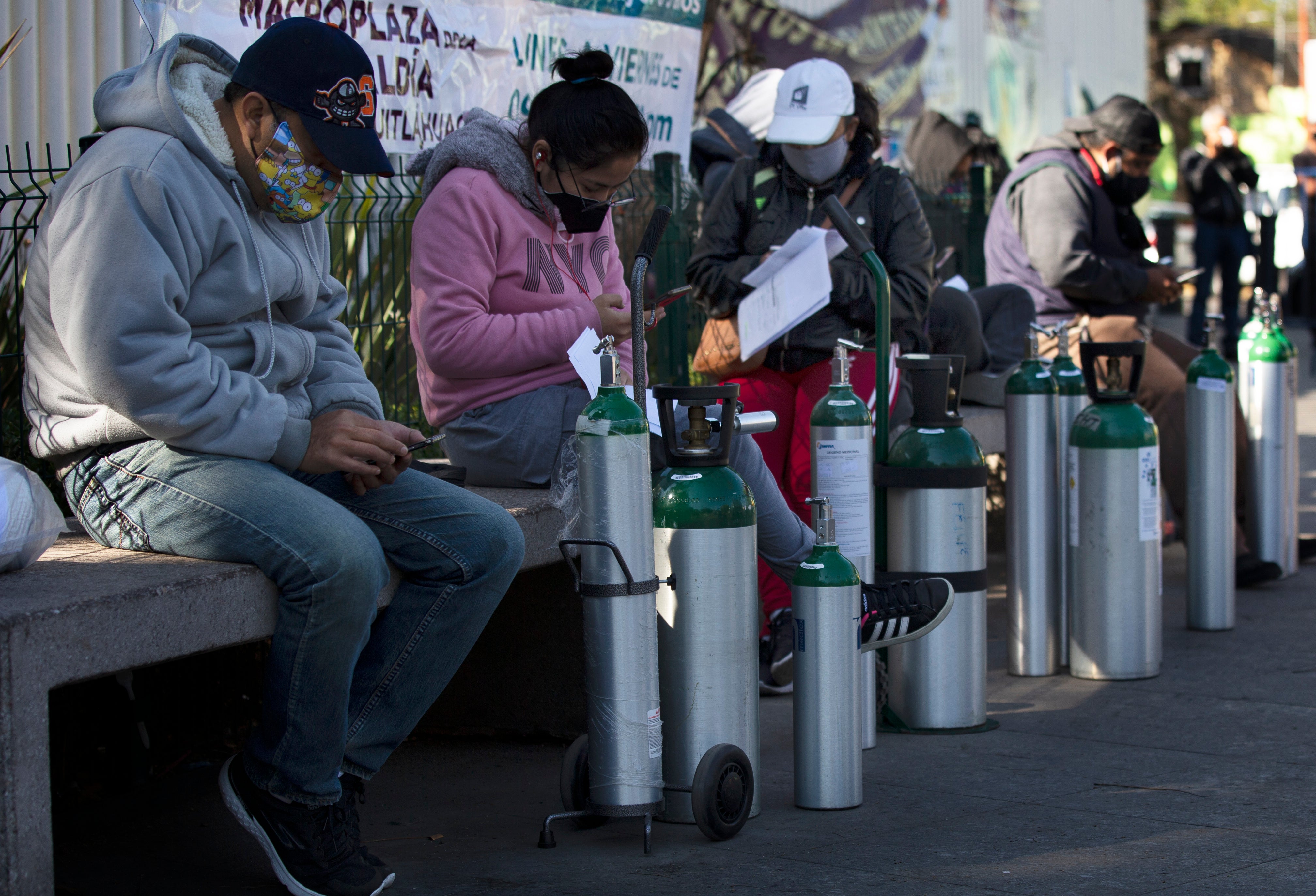Criminals in Mexico exploit desperation for oxygen canisters
High rates of coronavirus infection have led Mexico to crack down on the illicit trade in oxygen canisters, though thieves are coming up with new ways to defraud families

Your support helps us to tell the story
From reproductive rights to climate change to Big Tech, The Independent is on the ground when the story is developing. Whether it's investigating the financials of Elon Musk's pro-Trump PAC or producing our latest documentary, 'The A Word', which shines a light on the American women fighting for reproductive rights, we know how important it is to parse out the facts from the messaging.
At such a critical moment in US history, we need reporters on the ground. Your donation allows us to keep sending journalists to speak to both sides of the story.
The Independent is trusted by Americans across the entire political spectrum. And unlike many other quality news outlets, we choose not to lock Americans out of our reporting and analysis with paywalls. We believe quality journalism should be available to everyone, paid for by those who can afford it.
Your support makes all the difference.High rates of coronavirus infection have led Mexico to crack down on the illicit trade in oxygen canisters, though thieves are coming up with new ways to defraud families.
Hospitals in some parts of Mexico are almost 90% full, forcing families to treat their relatives at home. But the oxygen tanks they rely on have been the object of thefts, hijackings and fraud.
Even as Mexico’s president continued fighting the virus in isolation at his apartment, and the country’s richest man quickly was admitted to a top hospital, treatment for average Mexicans remained difficult and dangerous.
The head of the country's consumer protection agency, Ricardo Sheffield, reported Tuesday that hundreds of ads have been found offering industrial oxygen cylinders — used by torch and welding operators — for medical use.
“These are stolen cylinders, for industrial use, you can't use them to breathe,” Sheffield said. In other cases, fraudsters advertised tanks or oxygen concentrators at excessive prices, or accepted deposits and then disappeared.
“You are throwing away your money and they probably won't deliver anything,” he said.
Sheffield said police have forced the removal of 700 Facebook pages and 100 internet offers that were found to involve fraudulent or abusive offers of oxygen equipment. There have been several armed robberies of oxygen cylinders in recent weeks in Mexico, and hijackings of trucks delivering the canisters.
And on Tuesday, Mexico City police arrested a couple who posed as sellers of disinfectant liquids and gels whose use has skyrocketed in the pandemic. Once a potential customer showed up to the apartment they were using, the man and woman would kidnap the person and demand a ransom. Police believe they were involved in at least three such crimes.
Sheffield said the government had reached an agreement with companies that produce oxygen to purify and certify their product so that as much as 70% of what normally goes for industrial use, could be used to treat patients instead.
He also said that northern states could start to import oxygen from the United States.
Most of all, he urged Mexicans who bought canisters as a precaution, or who had finished using them, to turn them in so others could use them, noting “Returning a tank saves lives.”